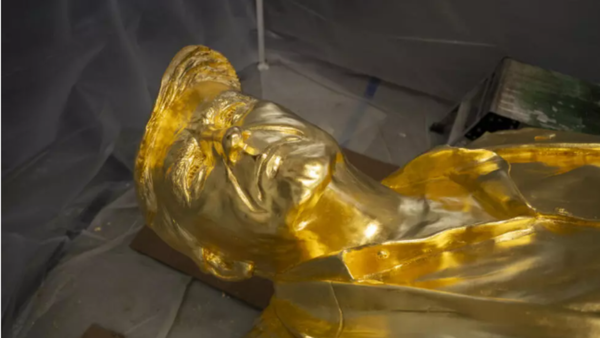Leaders from Torres Strait Islander communities have told an inquiry they want an Indigenous Voice to Parliament "to be listened to, not just to be heard".
The parliamentary committee examining the issue ahead of the referendum due later this year sat in Cairns on Wednesday.
Ned David from the Gur A Baradharaw Kod Torres Strait Sea and Land Council told the hearing the proposal for a Voice was "trying to meet everyone halfway, to a degree, and have something that's palatable to the Australian voters".
But he said there were concerns there was "no evidence the parliament or the executive will be compelled to listen to the Voice".
"If we don't do that, we're going the other way," Mr David said.
"It would actually silence us from having input into policies that directly affect our lives, our rights and our interests."
Voice needs 'security'
Mr David said new legislation going before parliament should be assessed by the Voice under a similar process to existing human rights legislation.
Torres Strait Island Regional Council Deputy Mayor Getano Lui said the Voice's model had to be "community driven".
"We need a voice to be listened to, not a voice just to be heard," he said.
"There is a big difference to me."
The Masig Statement, which declared a path towards regional autonomy and self-determination for the Torres Strait, was unveiled after the prime minister visited the islands last year.
Yarrabah Aboriginal community Mayor Ross Andrews told the inquiry he believed a Voice would help address concerning trends in Indigenous communities by improving policy approaches.
He said the body needed the "security" of being included in the constitution "so the next government doesn't come along and say: 'I'm sorry but, you know, things are not working the way we expect it to work.'"
But Cairns-based Indigenous artist and activist Jack Wilkie-Jans told the hearing the referendum should be delayed so communities could be given more detail about the Voice.
Mr Wilkie-Jans, invited to appear before the committee after giving a recent media interview, said there were "people with a lot of different views that are being ignored".
Lingering concerns
Mr Wilkie-Jans said he was hoping he could be swayed to vote yes come the referendum, but conceded he was "pessimistic".
Some First Nations organisations that gave evidence said they wanted existing structures to feed into the Voice, Mr Wilkie-Jans disagreed.
"I remember when it was being formulated a number of years ago, I certainly saw it as more of a move towards treaty or something like that, or certainly constitutional recognition, but that all changed I think," he said.
The Liberal Party is formally opposed to the government's Voice model and has instead advocated for the establishment of local and regional bodies.
"I couldn't think of anything more nonsensical to have just a Voice for the region but [no] formal connection to the national setting," Mr David told the inquiry.
"You need to have that connection and that seat at the table, simply because all the big decisions that are made nationally that impact Aboriginal and Torres Strait Islanders – all Indigenous people – are made at that level."
The inquiry's next hearing will be in Perth on April 28.







